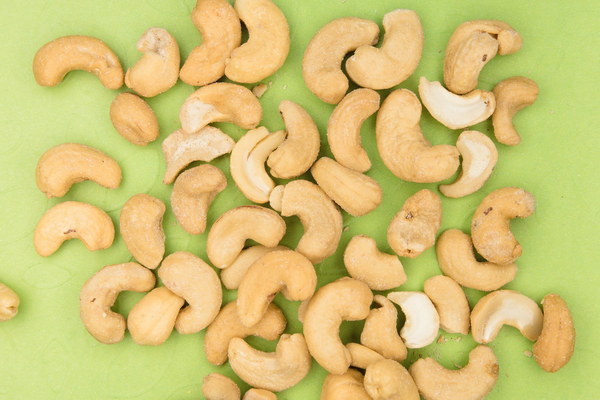Nephrotic Syndrome A Dietary Guide to Nutritional Remedies for Kidney Health
Introduction:
Nephrotic syndrome is a kidney disorder characterized by proteinuria, hypoalbuminemia, hyperlipidemia, and edema. It is crucial for patients with nephrotic syndrome to follow a proper dietary plan to manage their condition effectively. This article aims to provide a comprehensive guide to dietary remedies for individuals with nephrotic syndrome, focusing on renal-friendly foods and nutritional guidelines.
1. Low-Protein Diet
A low-protein diet is often recommended for patients with nephrotic syndrome to reduce the workload on the kidneys. Here are some tips for following a low-protein diet:
- Choose lean sources of protein, such as skinless chicken, turkey, fish, and tofu.
- Opt for low-protein vegetables like asparagus, broccoli, and green beans.
- Limit high-protein foods like red meat, dairy products, and legumes.
- Consider using a protein calculator to ensure you are consuming the right amount of protein.
2. High-Quality Carbohydrates
High-quality carbohydrates are essential for providing energy and maintaining blood sugar levels. Include the following in your diet:
- Whole grains, such as brown rice, quinoa, and whole-wheat bread.
- Fruits and vegetables, which are rich in fiber and vitamins.
- Legumes, such as lentils and chickpeas, which provide a good source of plant-based protein.
3. Healthy Fats
Healthy fats are important for kidney health and can help manage cholesterol levels. Incorporate the following fats into your diet:

- Monounsaturated fats found in avocados, nuts, and seeds.
- Omega-3 fatty acids found in fatty fish, such as salmon, mackerel, and sardines.
- Olive oil and canola oil for cooking.
4. Adequate Fluid Intake
Proper hydration is crucial for kidney health. However, the amount of fluid you should consume depends on your specific condition. Consult with your healthcare provider to determine the appropriate fluid intake for you. Here are some tips to ensure adequate hydration:
- Drink water throughout the day, aiming for at least 8-10 glasses.
- Avoid excessive intake of caffeine and alcohol, as they can dehydrate you.
- Incorporate hydrating foods like watermelon, cucumbers, and celery into your diet.
5. Limit Salt Intake
Excess salt can lead to fluid retention and worsen edema. Here are some tips to reduce salt intake:
- Use herbs and spices to flavor your food instead of salt.
- Choose low-sodium versions of processed foods.
- Avoid adding salt to your meals while cooking or eating.
6. Nutritional Supplements
In some cases, your healthcare provider may recommend nutritional supplements to address deficiencies. Common supplements for nephrotic syndrome include:
- Vitamin D: Essential for bone health and calcium absorption.
- Calcium: Important for bone health, especially if you are taking vitamin D supplements.
- Potassium: Helps maintain normal heart rhythm and muscle function.
Conclusion:
Following a proper dietary plan is crucial for individuals with nephrotic syndrome to manage their condition effectively. By incorporating a low-protein diet, high-quality carbohydrates, healthy fats, adequate fluid intake, limited salt intake, and appropriate nutritional supplements, patients can support kidney health and improve their overall well-being. Always consult with your healthcare provider for personalized dietary recommendations and guidance.









